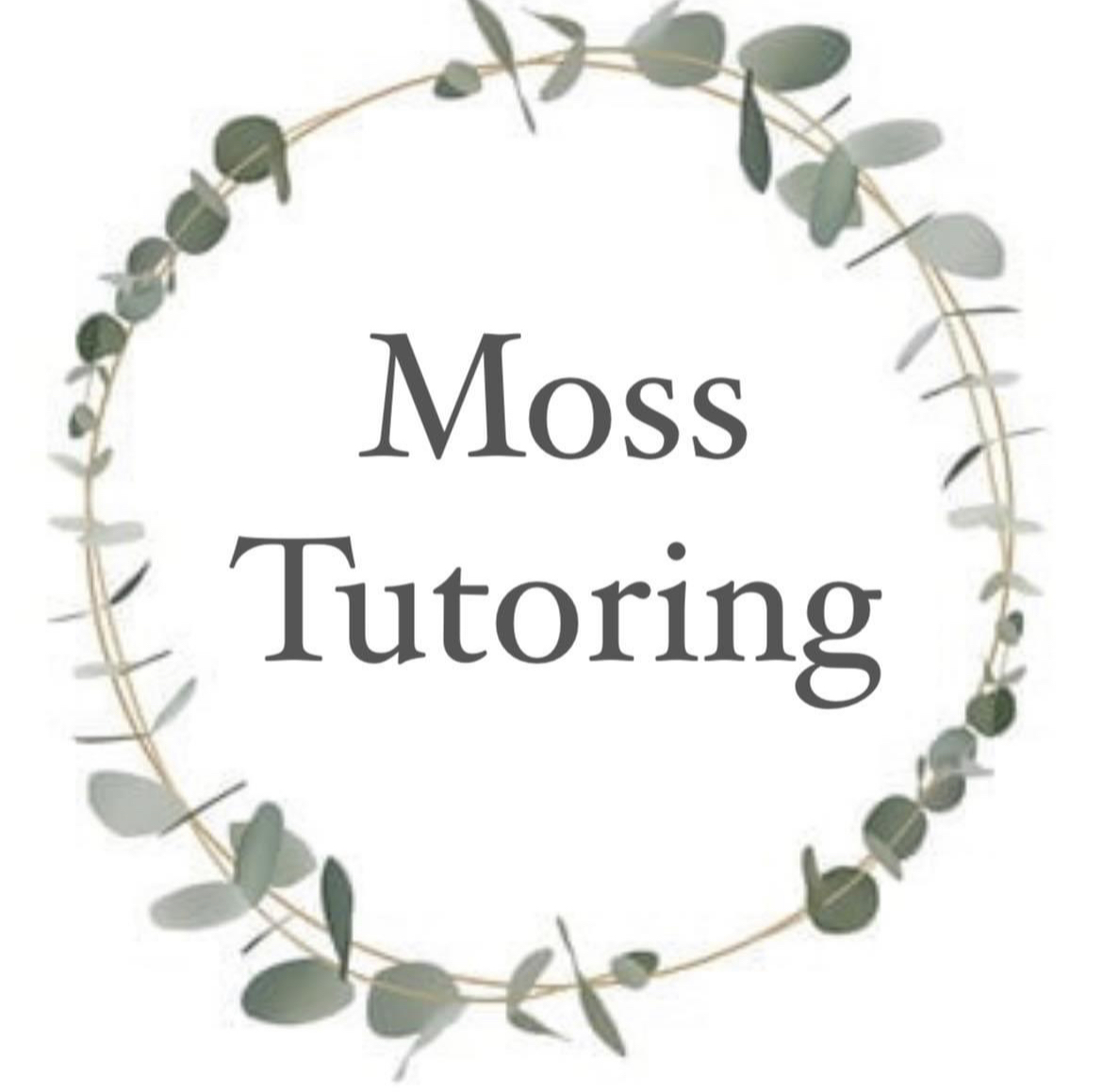Here are just some examples of sessions that we will complete with your child so you can get idea of what we do. Sessions will be tailored individually to your child’s needs.
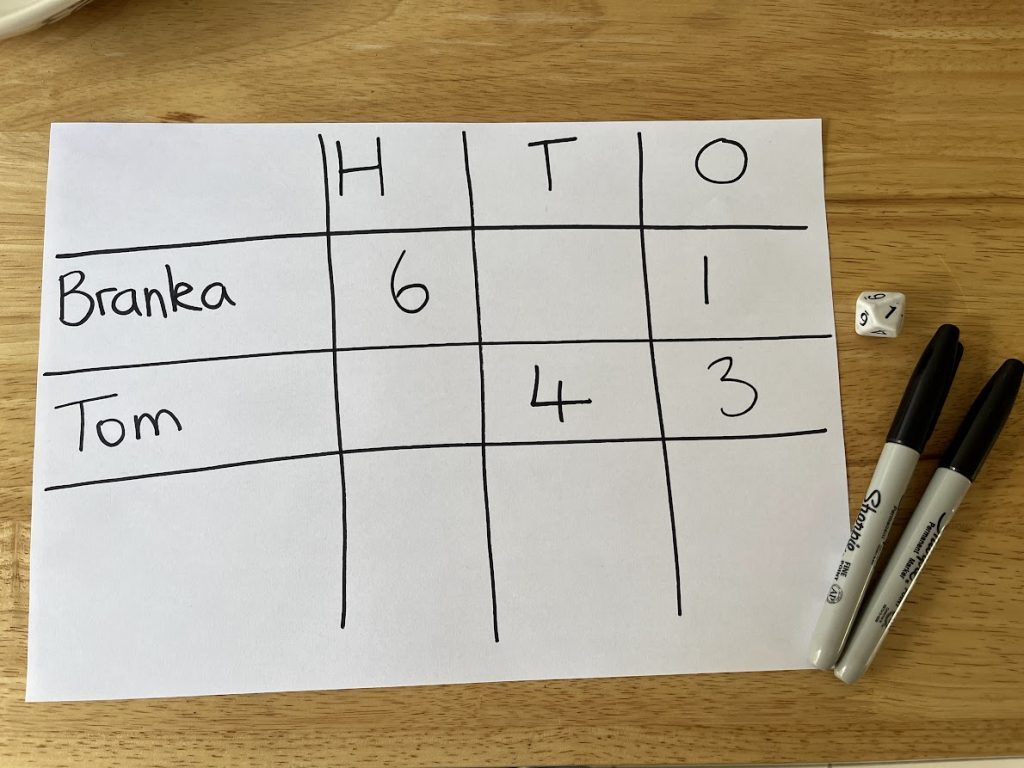
This is one of my absolute favourite games to play with a dice. Simply draw out your grid using however far you want to go in place value, then add your names. Then, roll a dice and place a digit in a column. Keep going until one of you has the highest number and wins! It’s a great way to use comparative language such as bigger, smaller, greater than and equal to, and thinking about the value of each digit in the column it’s in. You can also do this by the winner gets the smallest number too! You can make it your own by choosing how many players and columns too. Such a great reasoning and problem solving activity!
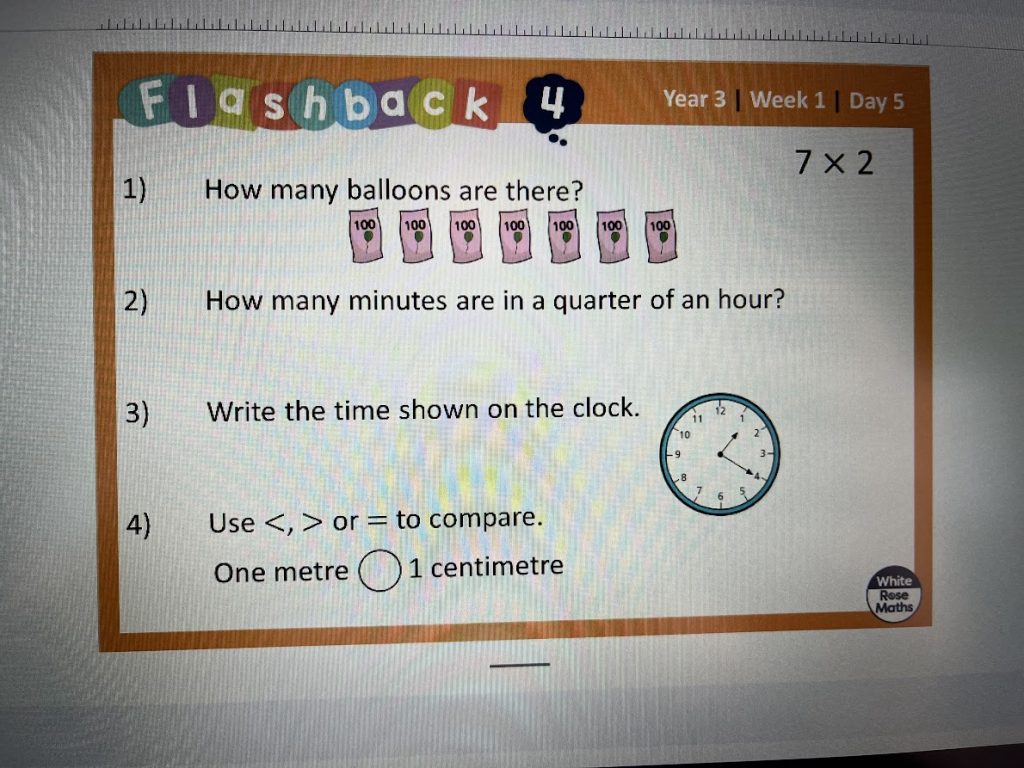
At the beginning of every Maths session, I always do one of these excellent warm up slides from the wonderful White Rose Maths. They are brilliant with reactivating learning covered in the last session and revising other topics your child may have covered in class at school. They are also good for discussing how your child came to an answer using the correct Mathematical language.
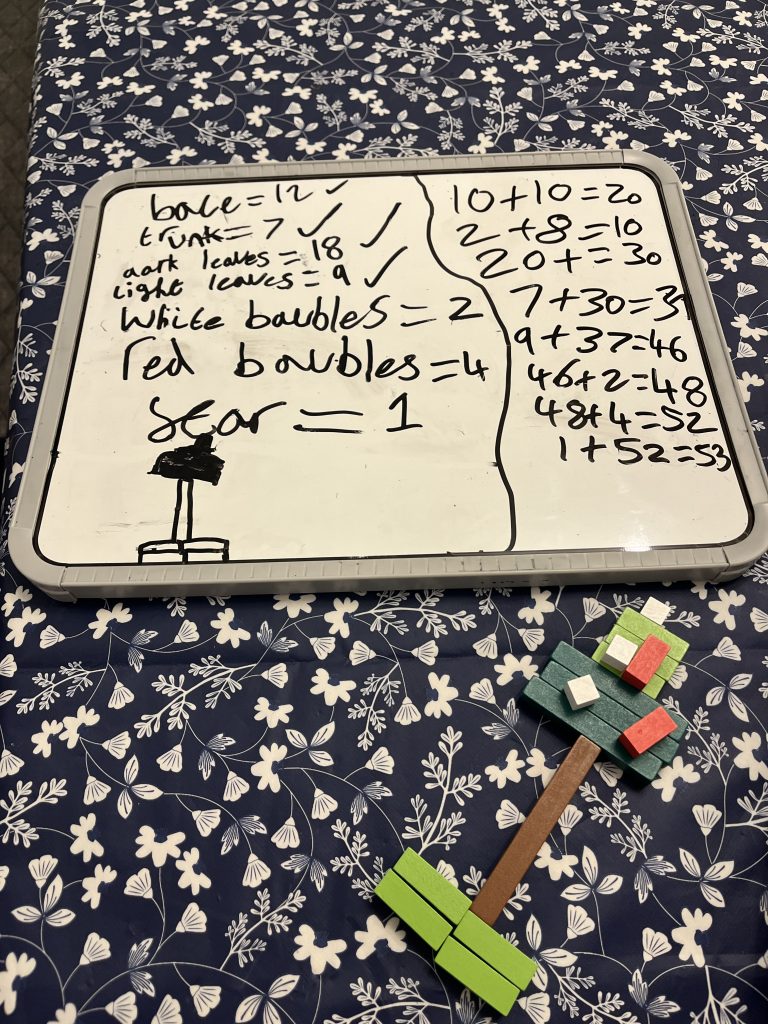
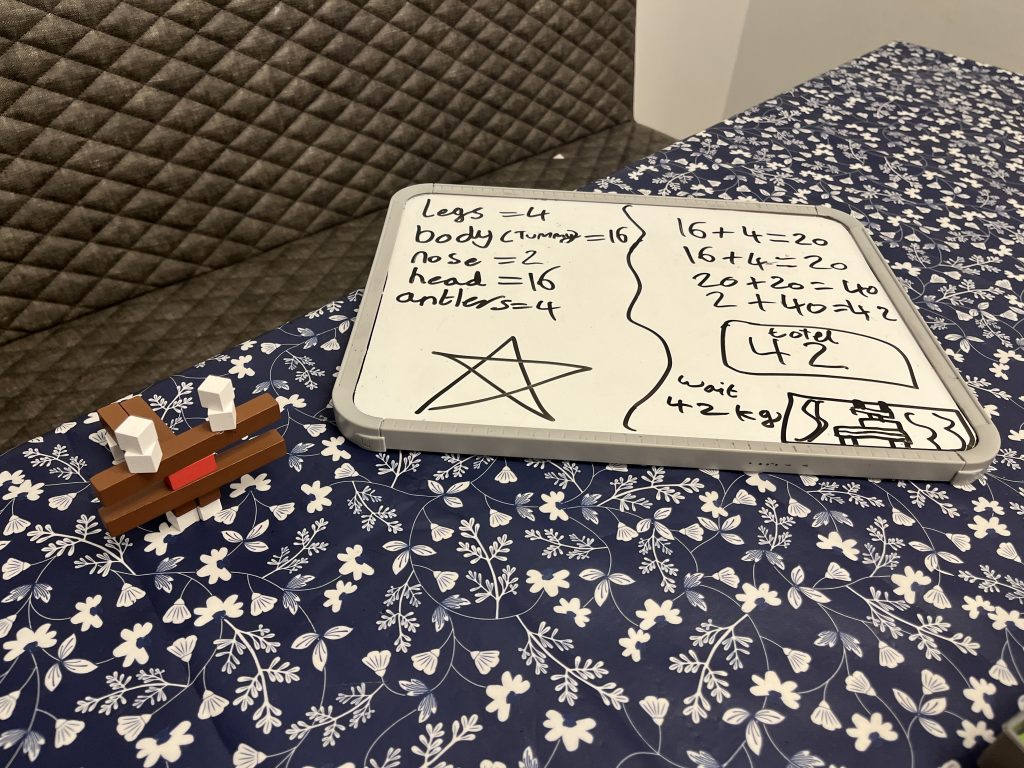
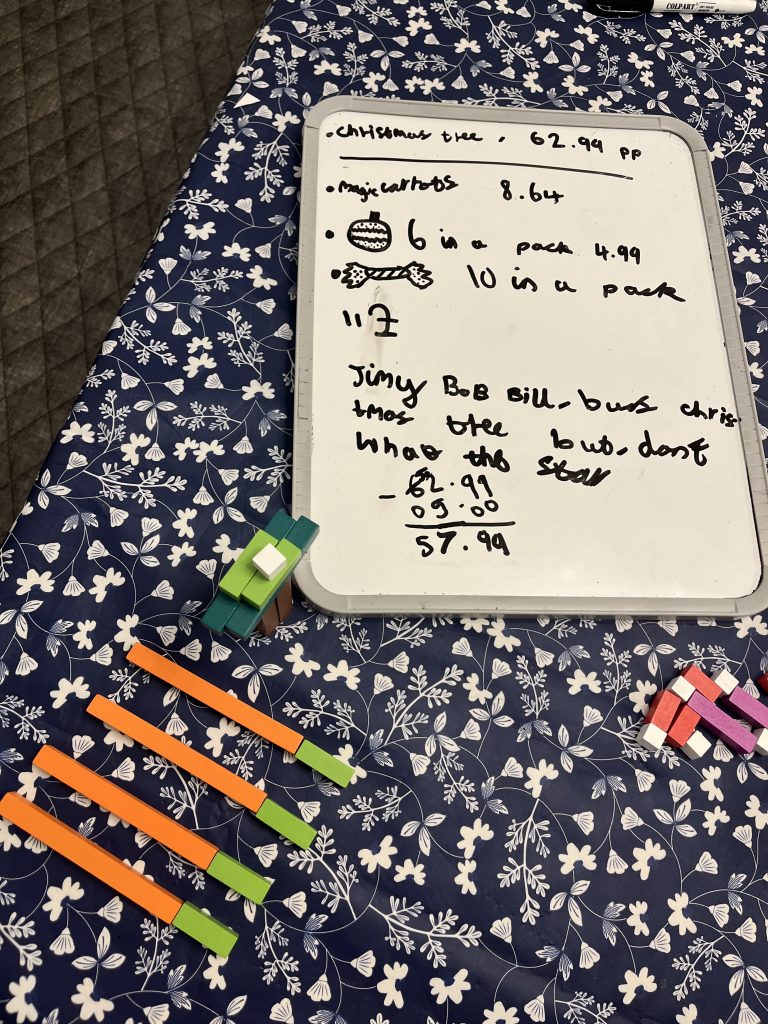
A fabulous couple of sessions with Y4 exploring the Maths you can spot after creating a Christmas picture or model! We explored times tables, mental methods when adding, creating our own word problems finding the change and even considering which would be a reasonable unit of measure to use when thinking about how much a reindeer weighs!
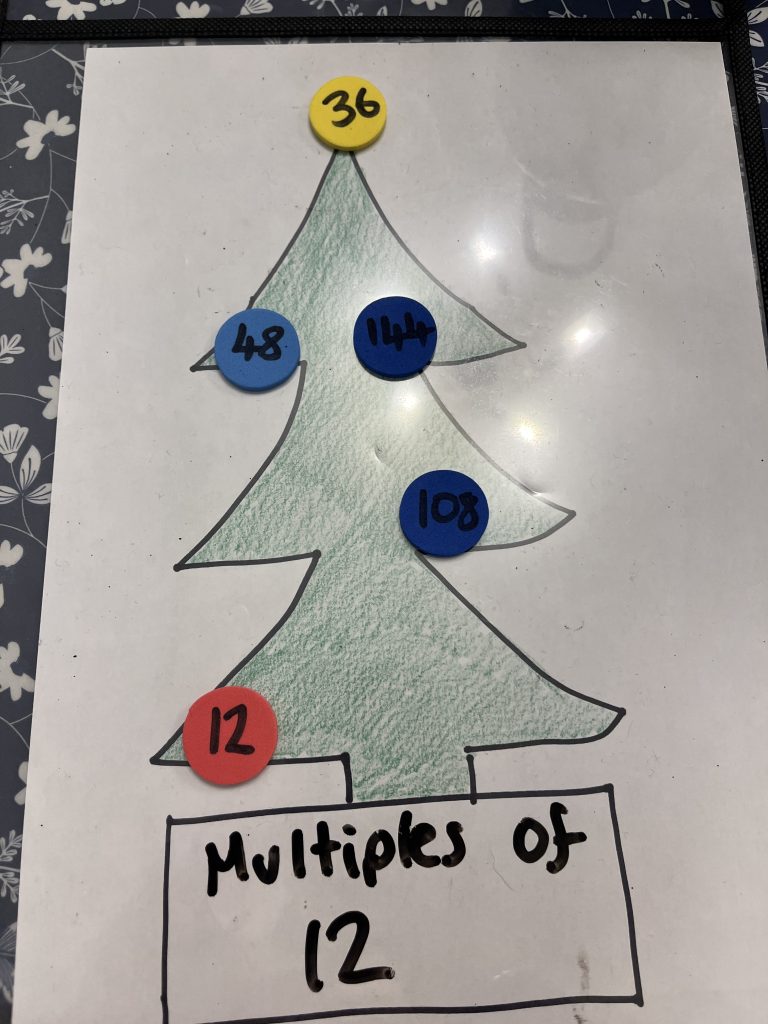
Another fabulous Christmas themed activity – decorate the tree with multiples of your choice! This has really got me thinking about how else you could do this such as using factors of a number, prime numbers, square and cube numbers… the possibilities are endless!
